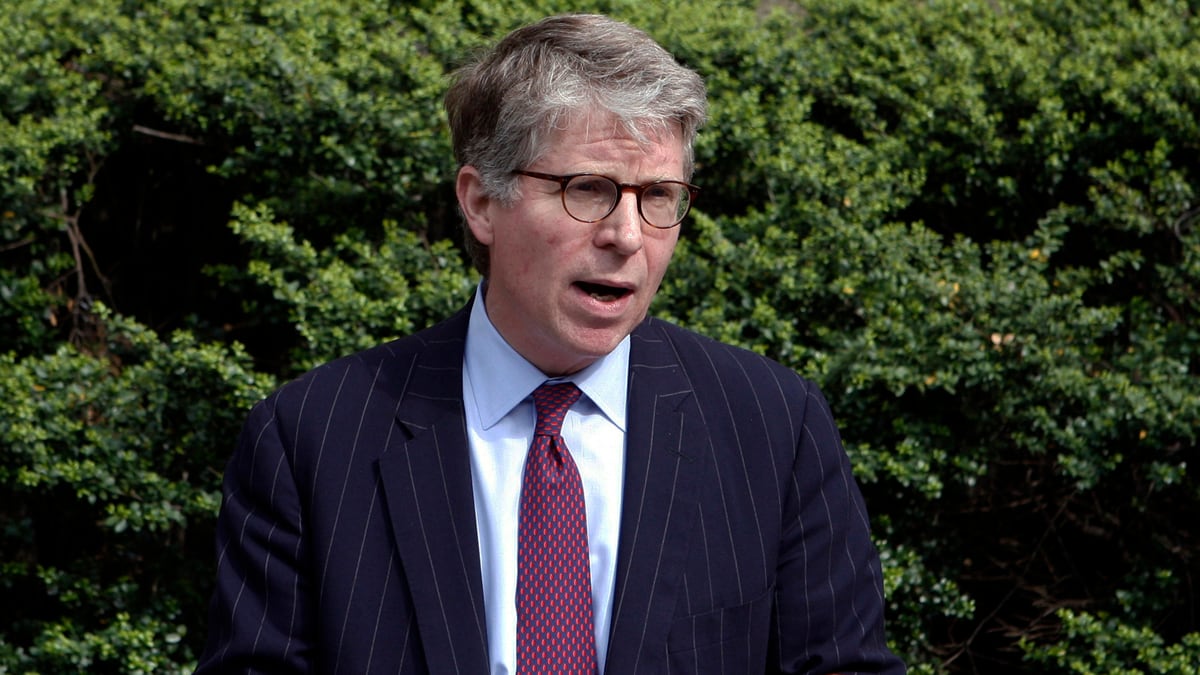All of a sudden, we’re supposed to beat our Yankee breasts over the Dominique Strauss-Kahn case. We’re supposed to apologize for our litigious, prudish ways. First, we embarrassed ourselves before the French on Iraq. Now we’ve embarrassed ourselves on DSK.
I don’t buy it. To the contrary, whether or not DSK goes free, his case reflects well on American justice. We can hold our heads high.
Let’s review the facts. A housekeeper comes forward. She says she was sexually assaulted, in an account that, according to The New York Times “was so compelling that it brought tears to the eyes of seasoned investigators.” There is powerful physical evidence: ripped stockings, a torn shoulder ligament, a vaginal bruise. Initial interviews with people in the hotel seem to corroborate her story. DSK is on a plane on his way to France, a country with which we have no extradition treaty for such crimes. So the police take him off the plane. What other option did they have?
In fact, they did have another option. Here, after all, was one of the most powerful men in the world, a steward of the international economy, a potential future president of one America’s key allies. He was being accused of sexual assault by a black, Muslim immigrant maid, a woman with virtually no status or power. For the police in most countries, at most moments in history, it would not have been a close call: let him fly. Tell her to shut up. If she won’t, find some way of making her shut up.
What happened on May 14 is not just defensible. As an example of equality before the law, it is downright inspiring.

And what happened last week is impressive too. The accuser, it turns out, has serious credibility problems. And how exactly did we learn that? The prosecutors told us. To repeat: the prosecutors told us, even though doing so has likely destroyed their case, and perhaps their careers. There was, once again, another option, an option that in most societies at most moments in time the government would have chosen in a heartbeat: lie. Even in today’s United States, prosecutors regularly withhold exculpatory evidence: it happened in the Duke Lacrosse rape case and in the prosecution of former senator Ted Stevens. That did not happen here. Which is to say, the system worked.
To be sure, not all associated with the DSK case covered themselves with glory. The New York tabloids acted like the New York tabloids. Kicking people when they’re down is what they do. They were sensationalistic and vulgar toward DSK, and they were sensationalistic and vulgar toward Anthony Weiner. They’ll besmirch anyone’s character, irrespective of nationality, race, religion or creed.
To see this as merely a public relations fiasco for the United States, however, misses the point. Yes, there are French nationalists—particularly French nationalist men—who believe the attack on DSK was an attack on their country’s honor. But there are also many French women who suffered mightily at the hands of men like Strauss-Kahn who feel no sympathy for him whatsoever. Anne Mansouret—whose daughter claims Strauss-Kahn tried to rape her in 2003—told The Times she was “revolted” by the way French men have rallied to DSK’s defense.
The Strauss-Kahn indictment “changed something in the mentality of French women," notes French feminist Natacha Henry. "This case has empowered women, even if this one isn't the Virgin Mary." Since DSK’s arrest, several French women have come forward to accuse a government minister, Georges Tron, of attempted rape, and he has since resigned. “There's an awareness and a willingness to speak out that wasn't there before,” notes Sylvie Kauffmann, the first female editor of Le Monde. Businesswoman Laurence Parisot recently told Le Parisien that the Strauss-Kahn indictment "is going to contribute to liberating speech.”
None of this means that DSK should be convicted if the evidence against him is weak. But simply taking his accuser seriously has changed the sexual-harassment debate in France. It has changed it because police and prosecutors in New York did something that in much of today’s world remains revolutionary: When a poor black woman said she had been abused by a rich white man, they listened. And they set about investigating her claims. I don’t think that’s anything to apologize for at all.





